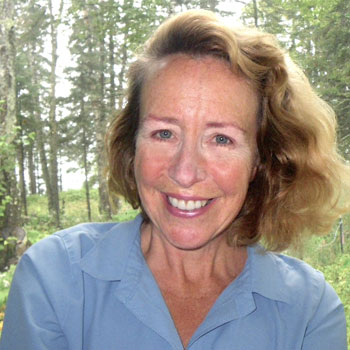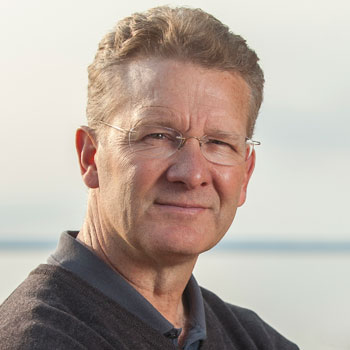Program
The State of Lake Superior Conference will be a multi-day conference and will include invited sessions and abstracts, plenary sessions, field trips, and associated meetings.
Download program files:
- Tuesday, Oct. 9
-
Noon-6 p.m.
Registration
Memorial Union Building, 3rd floor Ballrooms, Michigan Technological University
-
Noon-2 p.m.
Lunch on Your Own
-
Noon-2 p.m.
Workshop: Remote Sensing Technology
ME-EM 120 Active Learning Center
The objective of this workshop is to continue to build a bridge between the Lake Superior LaMP managers and the GIS/Remote sensing experts in the region in order to answer the most pressing 'geospatial' questions about Lake Superior. Opportunities for discussion may include LaMP implementations, prioritization, ecosystem functions protection, measurement of progress, and data needs analysis. No presentations are necessary other than to bring your 'geospatial' perspectives during the conference on how well scientists and researchers in the basin are answering the 'geospatial' questions of status and change for Lake Superior. Hosts Brian Huberty, USFWS, and Colin Brooks, MTRI.
-
2:30-6 p.m.
Field trips
- Quincy Mine Hoist Tour
Full tour, requires extended walking, participants meet at the Quincy Mine in Hancock. $25 fee
Visit the Quincy Mine Hoist Association website for tour details. - Small Dam – Big Impact
Group transportation from Michigan Tech to field site. $10 fee
Travel to Pricket Dam to discuss small dams and their big impact on the population of Lake Sturgeon. - Lake Superior’s Sand Point – Ojibwa Public Recreation Area and a Great Lakes Restoration Initiative project
Group transportation from Michigan Tech to Baraga. $10 fee
The Keweenaw Bay Indian Community welcomes you to a guided tour of the Ojibwa Public Recreation Area and our Great Lakes Restoration Initiative project at Sand Point. Located on the shores of Lake Superior, the tour includes visits to our traditional Pow Wow dance arena, Buck’s Marina Fishermen’s Tribute, and the Sand Point Lighthouse. We will also visit our Great Lakes Initiative Restoration project – our native species pollinator gardens - to talk about legacy mining, stamp sands (waste rock), and impacts to aquatic and terrestrial species and the Ojibwa culture. -
Copper Country Geoheritage Tour
Group transportation from Michigan Tech to Keweenaw Peninsula. $10 fee
Learn how Lake Superior and the landscape of the Copper Country were formed by reading the rocks. This trip explores vastly different events in Earth’s extraordinary history that have shaped the passage of people throughout this region. Lake Superior is widely known as a post-glacial feature, but the basin that cradles the lake was formed over one billion years ago when massive magma oceans poured onto the continent. Participants will explore the origins of the ancient lava flows that hold Lake Superior and learn about their relationship with the largest known native copper deposit on Earth. The trip explores the north shore of the Keweenaw and includes a stop at the Greenstone lava flow – the largest known lava flow on Earth! -
Watershed Restoration Site Visits
Group transportation from Michigan Tech to Baraga. $10 fee
Part of the future of Lake Superior hinges on the restoration of degraded ecosystems and populations. This field trip will begin with a visit to the local Pilgrim River Watershed that has been actively protected by the actions of a diverse group of community partners and it is a site of ongoing collaborations to restore migratory life histories of brook trout. From there we will travel to Hills Creek in the Keweenaw Peninsula that was severely degraded by legacy stamp sands and then actively restored to improve the riparian habitat and thus the fluvial ecosystem. -
Buffalo Reef
Group transportation from Michigan Tech to Gay. $10 fee
See and experience 140 years of copper mine tailing migration along the Keweenaw Peninsula’s eastern coastal shores of Lake Superior. This century old journey began at the Gay tailing pile and is now encroaching on Buffalo Reef, a primary breeding ground for lake trout and whitefish, and the Traverse River where the stamp sands are overtopping the USACE’s seawall. This tour will also include a site visit and talk at Torch Lake, a delisted Super Fund site and now Area of Concern.
- Quincy Mine Hoist Tour
-
5-9 p.m.
Informal Networking and Meet-up
Keweenaw Brewing Company
-
Dinner on Your Own
-
6-8 p.m.
Public meeting: Lake Superior Lakewide Management Plan (LaMP)
MUB Ballroom
The Four the Water Kayakers will share stories from their 2018 journey around Lake Superior, including their citizen-science monitoring for micro-plastics. This session will also provide an overview and discussion of the Lake Superior Lakewide Action and Management Plan, and provide time to network with representatives from many of the governmental agencies that are part of the Lake Superior Partnership Working Group. Free and open to the public.
- Wednesday, Oct. 10
-
7 a.m.-5 p.m.
Registration
Memorial Union Building, 3rd floor Ballrooms, Michigan Technological University
-
7-10 a.m.
Coffee, tea, pastry, and fruit
-
8 a.m.-5:30 p.m.
Exhibits
Memorial Union Building, 3rd floor Ballrooms, Michigan Technological University
-
8-9:20 a.m.
Concurrent Sessions
-
9:20-9:40 a.m.
Break
-
9:40-11:40 a.m.
Concurrent Sessions
-
11:40 a.m.-12:30 p.m.
Welcome, Opening Ceremony & Plenary
Welcome: President Warren “Chris” Swartz, Keweenaw Bay Indian Community
Opening Drum Ceremony: Woodland Singers, members of the Ojibwa and Menominee Tribes
Welcome: President Richard Koubek, Michigan Technological University
Plenary: Sustaining Lake Superior: Learning from Watershed History
 Nancy Langston
Nancy Langston
Author and Professor, Department of Social Sciences, Michigan Technological UniversityLangston will explore how can communities help sustain the health of Lake Superior in the face of climate change, invasive species, and emerging chemicals of concern? The challenges facing Lake Superior are many; yet local, regional, and international communities overcame enormous threats to the lake's ecosystems in the past century. This talk explores the lessons we can take from the lake’s environmental and social history as we face new interconnected challenges.
-
12:30-1:35 p.m.
Lunch
-
1:40-2:40 p.m.
Guided Tour of Great Lakes Research Center (optional)
Great Lakes Research Center
Join us for an optional guided tour of Michigan Tech’s Great Lakes Research Center (GLRC). Meet in GLRC lobby. Building 100 on campus map.
-
1:40-3:20 p.m.
Concurrent Sessions
-
3:20-3:40 p.m.
Break
-
3:40-5:20 p.m.
Concurrent Sessions
-
5:45-7:30 p.m.
Session: Scientific Challenges of Developing a Plan to Protect Buffalo Reef
MUB Ballroom
Free and open to the public, this session will provide an overview of the scientific challenges associated with developing an alternatives analysis/final plan for protecting Buffalo Reef from encroaching stamp sands. The presentation will show the alternatives being considered and provide an open discussion on the challenges and how to overcome them. As background, 23 million tons of mine tailings, dumped into Lake Superior a century ago, have been pushed by wind, waves and currents to create a deadly threat to Buffalo Reef, a valuable fish spawning habitat. This copper-laden waste, locally called stamp sands, has covered over a third of the reef and a similar amount of nearby juvenile whitefish habitat. The EPA initiated the Buffalo Reef Task force two years ago to develop a management plan to preserve and protect the lake trout and whitefish populations.
-
6-9 p.m.
Welcome Reception
Continental Fire Company, downtown Houghton
Ticket included with full-conference registration. Additional tickets $25.
- Thursday, Oct. 11
-
7 a.m.-5 p.m.
Registration
Memorial Union Building, 3rd floor Ballrooms, Michigan Technological University
-
7-10 a.m.
Coffee, tea, pastry, and fruit
-
8 a.m.-7:30 p.m.
Exhibits
Memorial Union Building, 3rd floor Ballrooms, Michigan Technological University
-
8-9:20 a.m.
Concurrent Sessions
-
9:20-9:40 a.m.
Break
-
9:40-11:40 a.m.
Concurrent Sessions
-
11:40 a.m.-12:30 p.m.
Welcome, Update & Plenary
Welcome: Ed Verhamme, IAGLR Board Member
Update: State of Lake Superior Ecosystem: Elizabeth LaPlante, Lake Superior Manager, Great Lakes National Program Office, U.S. Environmental Protection Agency
Plenary: Great Lakes Water Tension in the 21st Century
 Peter Annin
Peter Annin
Director, Mary Griggs Burke Center for Freshwater Innovation, Northland College, Ashland, Wisc. and author of The Great Lakes Water Wars, the definitive work on the Great Lakes water diversion controversyFrom Waukesha to Foxconn, and the massive water diversion in Chicago, Great Lakes water tensions continue to make news across the region. Throughout history, Lake Superior has often been on the frontline in the Great Lakes water diversion debate, including the highly controversial Nova proposal of 1998, which planned to use ocean-going tankers to ship 158 million gallons of Lake Superior water to Asia every year. Annin is publishing a major revision of his award-winning book, The Great Lakes Water Wars, which is being released on October 3, the 10th Anniversary of the Great Lakes Compact. His talk will help cut through the confusion surrounding the Great Lakes water diversion debate and help put Great Lakes water tensions in a regional, continental, and global context.
-
12:30-1:35 p.m.
Lunch
-
1:40-2:40 p.m.
Guided Tour of Great Lakes Research Center (optional)
Great Lakes Research Center
Join us for an optional guided tour of Michigan Tech’s Great Lakes Research Center (GLRC). Meet in GLRC lobby. Building 100 on campus map.
-
1:40-3:20 p.m.
Concurrent Sessions
-
3:20-3:40 p.m.
Break
-
3:40-5:20 p.m.
Concurrent Sessions
-
5:30-7:30 p.m.
Poster Reception
With appetizers and beverages. Ticket included with full-conference registration. Additional tickets $25.
-
7:30 p.m.
Dinner on Your Own
- Friday, Oct. 12
-
7-11 a.m.
Registration
Memorial Union Building, 3rd floor Ballrooms, Michigan Technological University
-
7-10 a.m.
Coffee, tea, pastry, and fruit
-
8 a.m.-Noon
Exhibits
Memorial Union Building, 3rd floor Ballrooms, Michigan Technological University
-
8-11 a.m.
Workshop: EnviroDIY – Low-cost Sensors for Environmental Monitoring
GIS Teaching Lab in GLRC (GLRC B003)
This free workshop will walk through the EnviroDIY technology platform, which enables new low-cost sensors to be built and deployed with off-the-shelf electronics. The founder of the movement, Anthony Aufdenkampe, will be present to give an overview of the history of the project and how scientists and ordinary citizens can deploy cost-effective and robust monitoring networks at a fraction of the cost of traditional technology. Participants will get hands-on experience with assembling a station, programming, and data management. No experience is necessary. Just an interest in monitoring the world around us. Hosts: Ed Verhamme and Anthony Aufdenkampe, LimnoTech
-
8-9:20 a.m.
Concurrent Sessions
-
9-11 a.m.
Workshop: Citizen Engagement Strategy
Great Lakes Research Center, Room 202
This workshop will initiate a dialogue on how citizens, state agencies, industry representatives, and tribes can best engage the mine waste and permitting policies. Invited panelists will present an overview of their strategies for engaging communities with a focus on the lessons learned. Small group discussions will address questions such as: what are the major concerns today in communities dealing with legacy waste? How can experiences with past mines help citizens address new mine proposals and construction? How accessible is the policy and decision process for local citizen engagement? How can agencies best involve and incorporate diverse public perspectives, without allowing the process to be hijacked? What lessons have existing organizations learned from their involvement? Workshop participants will develop a list of best practices for productive citizen engagement with community mining issues. Hosts Nancy Langston and Carol MacLennan.
-
9:20-9:40 a.m.
Break
-
9:40 a.m.-12:30 p.m.
Concurrent Sessions
-
12:30-12:40 p.m.
Closing Ceremony
Outside MUB, central campus, weather permitting. In case of inclement weather MUB Commons.
Featuring Woodland Singers, members of the Ojibwa and Menominee Tribes.
-
12:40 p.m.
Conference Adjourns


